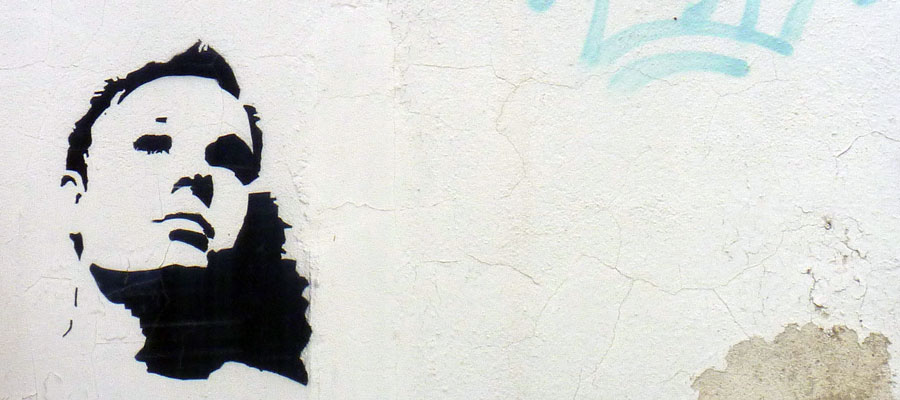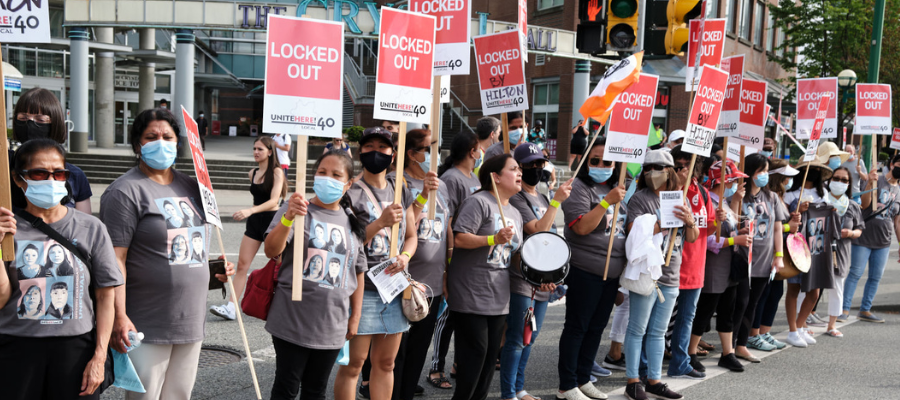Dependence on tips leaves women workers vulnerable to sexual harassment

Recently tipping in the restaurant industry has been the subject of two national opinion polls, both of which suggest the public is divided on the ingrained social practice that is tipping.
In early May, the CBC conducted an online poll asking, “Is it time to end tipping?” Only about 12 percent said No, while over 40 percent said Yes, and 46 percent said Maybe, but only if people were to be paid more.
Shortly after, in mid July, the Angus Reid Institute released the results of an online survey that found 40 percent in favour of a service-included model that would accompany higher wages for restaurant employees, while 46 percent were in favour of keeping the current model of tipping, and the remaining participants had no preference. Although the Angus Reid Survey indicates Canadians don’t appear poised to overwhelmingly embrace a move to a no-tipping model, a majority of survey participants “…see tipping as a mechanism for employers to underpay wait staff as well as others in the hospitality industry.”
These polls accompany a growing no-tipping movement in Canada. A handful of restaurateurs are experimenting with alternative models, such as including a standard service or hospitality charge on bills that gets shared will all restaurant staff, or introducing a no-tipping policy while raising menu prices to pay staff higher hourly wages. Proponents of these new models of compensation argue they will address the wage discrepancy between servers and kitchen staff, and provide more income stability than the current voluntary method of tipping.
Some European countries have already made such models the law. In France, for example, tipping is no longer done, and a gratuity for staff is now legally required to be embedded in restaurant prices, a move that increases transparency for both workers and customers, and stymies tax avoidance.
Tipping involves customers in a responsibility usually reserved for employers: paying workers for their labour. Employment standards laws in some jurisdictions in Canada even recognize customer involvement in remunerating workers by allowing restaurant employers to pay some workers less when they earn tips.
In BC the minimum wage for “liquor servers” is $9.20 per hour, $1.25 less than the $10.45 per hour general minimum wage. Established in 2011, the liquor server minimum wage reflects strong pressure from employer groups who called for the lower wage rate during a stakeholder engagement process. The government did not—and has still not—researched the impact of the lower liquor server minimum wage on either employees or employers in the restaurant industry (something our Freedom of Information requests have revealed). At the very least the government could have also introduced regulation of tips and tip pooling—a common practice of tip redistribution—as Ontario has now done with the Protecting Employees Tips Act.
The introduction of a lower minimum wage for liquor servers represents, in effect, an unprecedented wage subsidy to restaurant and bar owners. Moreover, with Statistics Canada data showing that 81 percent of food and beverage severs in BC are women, the lower liquor server minimum wage has gendered implications. This story, however, is missing from conversations being had about tipping and its alternatives.
Recent research conducted in BC by Kaitlyn Matulewicz has found that the dependence workers have on customers for tips leaves workers vulnerable to enduring sexual harassment and sexualized behaviour from customers as a “price” to be paid for a tip – a form of institutionalized quid pro quo. If workers do resist by, for example, speaking up against customers who are harassing them, they risk losing a tip.
Overtime, sexualized behaviour from customers becomes normalized (something workers simply put up with to earn a living). Some employers also use the promise of earning higher tips to entice workers to accept their discriminatory gender-based dress codes that require workers to wear make-up, high-heeled shoes, low cut tops and high cut skirts.
In short, the liquor server minimum wage legitimizes the involvement of customers in paying workers, and in doing so, reinforces the sexual harassment experienced by women who work as servers, bartenders, and hostesses, and contributes to the sexualization of food and drink serving overall.
The research suggests that the reliance workers have on customers for tips is heightened under the precarious working conditions faced by workers in the restaurant industry, a situation worsened by inadequate employment standards legislation in BC. In an environment in which there are no paid sick days, extremely variable work schedules that include open-ended or on-call shifts (if you’re not called in you’re not paid), and no regulations protecting employer collection and distribution of tips, the asymmetrical power relations between employers and workers—and between customers and workers—are intensified.
The BC government needs to take action to address this inequity and violation of human rights in the restaurants and bars of the province. It needs to eliminate the liquor server minimum wage and regulate the ownership of tips received by all service workers. Laws that allow employers to pay workers lower minimum wages when they are tipped by customers increase workers’ reliance on customers (who are a third party to the employer-employee relationship) for tips. The impact is not gender neutral and contributes to the normalization of sexual harassment and the sexualization of food and drink serving.
This piece was originally published in the Vancouver Sun.
Topics: Employment & labour, Women


